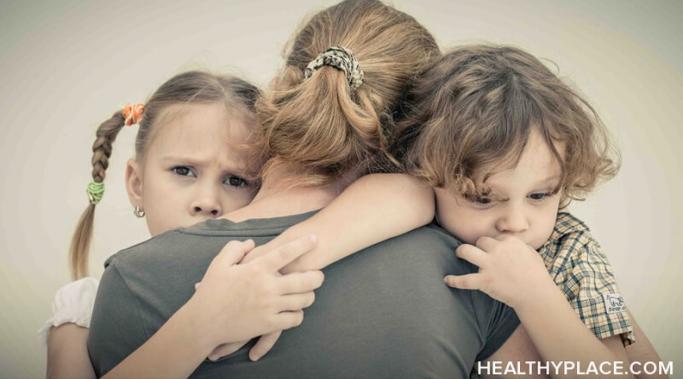When cruising Facebook profiles, many times under "relationship status," you'll find someone wrote "it's complicated." As a matter of fact, you'll find the phrase on so many profiles, it's become sort of a joke. What's no laughing matter is that for many with a mental illness, relationships can be complicated.
Relationships - TV Show Blog
Amanda_HP
The cycle of dysfunction - you grow up in a significantly dysfunctional family and it has an impact on you. Now you have kids and the cycle of family dysfunction continues. Without recognition and positive change, the family dysfunction is passed from generation to generation.
Amanda_HP
Here's how one person in a 10-year relationship with a person with borderline personality disorder describes the experience: "Although I loved this person, I hated the relationship. It was a psychological hell."
Coping with someone living with borderline personality disorder can be emotionally exhausting and a difficult challenge. Here's why.
Amanda_HP
HealthyPlace has the largest narcissism site on the internet: Malignant Self-Love: Narcissism Revisited. Thousands of people visit every month.
I mention this because we are constantly flooded with emails from victims of narcissists, mostly women, who are emotionally beat up and mentally dragged down after being in a relationship with a narcissist. While reading through these emails, I've often wondered what attracted these women to men with narcissistic personality disorder and led them to stay; even at huge emotional and financial costs. Those who were lucky enough to escape are still reeling, trying to delve through the aftermath. For answers to "why?," we are turning to this week's guest, Sandra Brown, MA.
Amanda_HP
Whether it's a mental or physical illness, it's natural to concentrate on the person who has the illness. Many forget that family members and loved ones are also suffering. The impact of mental illness on families comes in the forms of grief, denial, frustration, exhaustion, and stigma.
admin
Last Tuesday, we covered an unusual aspect of suicide; surviving it.
After listening to our guest Patricia Gallagher relive her husband, John’s, failed suicide attempts, we understand that although he survived, there were many pieces left to put together. The Gallagher’s dealt with shame and initially decided not to divulge too much information to friends and family.
admin
As you know, suicide is never a pleasant subject. Often times, bouts of depression are so strong that those suffering feel the only way out is to end their life. What family members are left to deal with is unbearable, as feelings of loss and guilt take over.
But what happens when the suicide attempt fails? It seems that situations such as these are not any easier to deal with.
admin
According to the Center for Disease Control in Atlanta, over 23 million Americans suffer from an addiction to drugs or alcohol. We all know addictions can destroy the life of the addict, but what about the family? How can the family cope and support the addict without being co-dependant and feeding the addiction? Our topic for the HealthyPlace Mental Health TV show airing live, this Tuesday, March 31st is "Families and Addiction."






